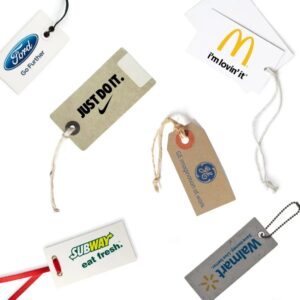 A corporate motto that says — in as few words as possible — a lot about your product or service is key to strategic image management (SIM). SIM demands that you choose a motto that telegraphs your values and prompts people to respond positively to whatever you sell. (And ultimately, to buy it.)
A corporate motto that says — in as few words as possible — a lot about your product or service is key to strategic image management (SIM). SIM demands that you choose a motto that telegraphs your values and prompts people to respond positively to whatever you sell. (And ultimately, to buy it.)
SIM makes the public relations process that much easier; for example, imagine the usefulness of any of these corporate mottos near the top of a press release:
Products:
– Intel Inside
– Got Milk?
– TIAA CREF: Managing money for people with other things to think about.
– Altoids: The Curiously Strong Mints
– Today. Tomorrow. Toyota.
– You never actually own a Patek Phillipe. You merely take care of it for the next generation.
Cities:
– Miami — Financial Capital of South America
– Chicago — City in a Garden
– Flanders — Europe’s Best Business Location
Countries:
– Canada — Discover our true nature.
– Scotland — Silicon Glen
– Spain — Everything Under the Sun
– United States Virgin Islands: America’s Caribbean
Even small firms need a motto. For my business seminars, I use: “Writing for results in the Age of Information Overload.”
But inventing a corporate motto takes time before you start reaping the public relations benefits. First, you need to figure out what the essence of your business is. How is it different from competitors’ businesses? What is special about your products or services?
The old admonition of sales pros to “sell the sizzle not the steak” still applies. Altoids would seem less appealing if their motto were “sharp-flavored little candies.” Miami wouldn’t seem clever if its motto were “Close to Cuba.” Both these corporate mottos are accurate, but SIM is about more than accuracy. It’s about creating desire and demand.
Sometimes one of the few differences between brands is a contrast in their image as reflected in their motto. Coke’s “Enjoy” contrasts with Pepsi’s “The right choice.” The most obvious guess about their positions is that with these mottos, Coke draws people who primarily want to have a good time, while Pepsi draws people who may be a tad insecure and want to feel reassured about their choice of a cola.
But a motto, unlike a diamond, isn’t forever. Before “Got Milk?” there was “Milk: it does a body good.” When the milk industry changed their slogan, they changed their emphasis from milk as healthy to milk as the secret to making other foods taste better: you will enjoy bananas, cereal, cookies, and so on even more if you have milk with them.
SIM can’t be overestimated and can’t always be predicted. Both Federal Express and Post-Itª notes supposedly failed when they were first tested on consumers. But they established clear images; consumers know what to expect from them.
SIM is particularly important to small businesses with no room in their public relations and advertising budgets for failed experiments. One way to get started on crafting your motto is with mindmaps or lists. Free associate. Write down everything your business offers now or could offer without major changes. Whether these items are significant or trivial doesn’t matter. When you’ve exhausted the possibilities, rank the ideas, with the ones you think have the most appeal (the ones that sizzle) at the top. Those are the ones to work with as you begin to think up mottos and test them on friends, family, and clients. But if inspiration fails, hire a pro to help you.
When the pay-off is a corporate motto that sends a clear message about exactly who you are and what you offer, its public relations value is priceless.
This article, written by Hawley Roddick, originally appeared in PR Fuel (https://www.ereleases.com/prfuel), a free weekly newsletter from eReleases (https://www.ereleases.com), the online leader in affordable press release distribution. To subscribe to PR Fuel, visit: https://www.ereleases.com/prfuel/subscribe/.
